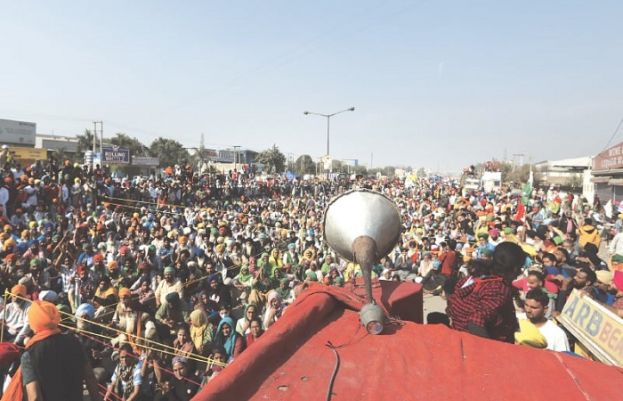
The thousands of farmers would continue camping out on highways in Punjab and Haryana states until three new agriculture laws are withdrawn, Jaskaran Singh, a leader of the Kisan Union, or Farmers Union, told reporters.
The farmers say the laws could cause the government to stop buying grain at guaranteed prices and result in their exploitation by corporations that would buy their crops cheaply.
The government says the legislation brings about much-needed reforms that will give farmers the freedom to market their produce and boost production through private investment.
“These reforms have not only served to unshackle our farmers but also given them new rights and opportunities,” Prime Minister Narendra Modi said on Sunday.
On Friday, Agriculture Minister Narendra Singh Tomar offered to hold talks with the farmers’ representatives on Dec 3.
That offer came a day after clashes with police, who used tear gas, water cannon and baton-charge to push protesting farmers back as they tried to enter New Delhi.
The latest offer for talks was made by Home Minister Amit Shah on Saturday. But he said the farmers would have to shift their protests to a government-designated venue in New Delhi and stop blocking the highways.
Singh, the farmers’ representative, said he doubted the government really wanted to hold talks.
“We want the farm laws to be scrapped, that’s all,” he said.
Singh said more farmers would be joining the protest and blocking national highways in other states as well.
Farmers have long been seen as the heart and soul of India, where agriculture supports more than half of the country’s 1.3 billion people. But farmers have also seen their economic clout diminish over the last three decades. Once accounting for a third of India’s gross domestic product, they now produce only 15 per cent of the GDP, which is valued at $2.9 trillion a year.
Farmers often complain of being ignored and hold frequent protests to demand better crop prices, more loan waivers and irrigation systems to guarantee water supply during dry spells.
No comments:
Post a Comment